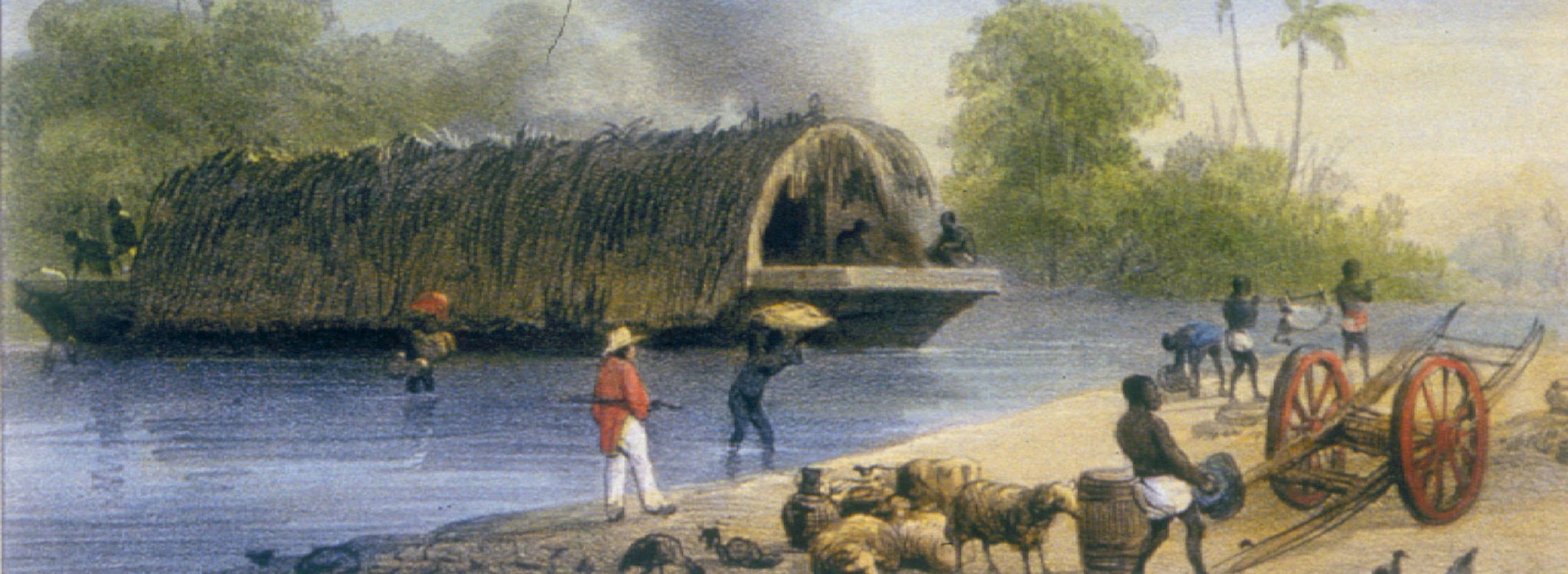Enslaved: Peoples of the Historical Slave Trade frames the ethics of our project around inclusive and reparative scholarship about historical slavery and responsible stewardship of historical data about enslaved people in digital spaces. The project centers Black experiences in bondage and freedom and supports contributors and contributions in dialogue with the life matters of enslaved persons, families, and communities. These principles guide us across the project’s many facets, from research to publications and public programming to social media engagement.
Our approaches to racial justice, archival research, inclusive and reparative scholarship, data stewardship, scholarly recognition, sustainability, and community engagement inform how we develop and execute our mission of making information about the historical slave trade and slave societies widely accessible for all. We recognize that the brick-and-mortar institutions of Michigan State University and the University of Maryland, among many project partners, occupy the territories of many Native, Indigenous, and First Nations peoples and states. We further recognize that our institutions are among the many that benefited from the stolen labors and cultural patrimony of Native, African, and African-descended peoples.
Although the historical record and data-driven approaches to history have often rendered enslaved people as nameless, we aspire to use historical data collections to recover, aggregate, and make accessible the names and life stories of enslaved people. We recognize that primary source material reflects the perspectives and biases of the material’s authors, reflecting the systems of power and racist ideologies of the periods in which they were written. Most often, they fail to acknowledge the humanity of enslaved people and instead commodify Black bodies and experiences. We are committed to identifying by name as many enslaved people as possible and to representing individual and collective experiences in an intentional, humane, and ethical frame. We seek out submissions that read against the grain of dehumanizing archival perspectives, pursue alternative sources, recognize their own positionality within larger systems of power, and support descendant communities in telling their own histories. We work collaboratively with researchers and descendant communities to continually develop and follow practices that respect the lives of enslaved people.
We aspire to continually build and transparently model ethical, sustainable practices in research, data stewardship, digital accessibility, publication, programming, community engagement, and public outreach, serving as a guide for other projects. Our practices are rooted in the collaborative production and dissemination of knowledge. We work not only to aggregate available resources in the present but also assure their preservation in the future. We create data and digital infrastructure with durability and sustainability in mind. We intentionally rely on open source software and programs and utilize accessibility tools so that others can pursue similar work. We are committed to building a digital infrastructure that is oriented toward sharing research in a findable, accessible, interoperable, and reusable manner. In focusing on linking records, we build the community of researchers working in slavery studies. We argue that the rigorous work by academic researchers, librarians and archivists, and data stewards in the responsible preparation of datasets based on deep historical research should be recognized as scholarship. We assure quality and promote recognition through the formal procedures of peer review and publication, while also maintaining more accessible routes for inclusion of contributors from outside the academy and heritage institutions. We promote free, unfettered access to content with a commitment to maintaining project-related resources into the future.
We welcome recommendations from our public community and will continually reflect on and revise our practices to align with our ethical principles.
This statement is informed by a wide variety of sources but especially the following: “Colored Conventions Project Principles,” Colored Conventions Project,
https://coloredconventions.org/about/principles/; “Ethical Commitments,” On These Grounds, https://onthesegrounds.org/s/OTG/page/ethical-commitments; “FAIR Principles,” GO FAIR, https://www.go-fair.org/fair-principles/; “Guiding Principles,” Black Lives Matter Philadelphia, http://www.blmphilly.com/who-we-are/; and Jessica Marie Johnson, “Markup Bodies: Black [Life] Studies and Slavery [Death] Studies at the Digital Crossroads,” Social Text
36, no. 4 (December 2018): 57–79. Special thanks to Briona Simone Jones for her contributions.
